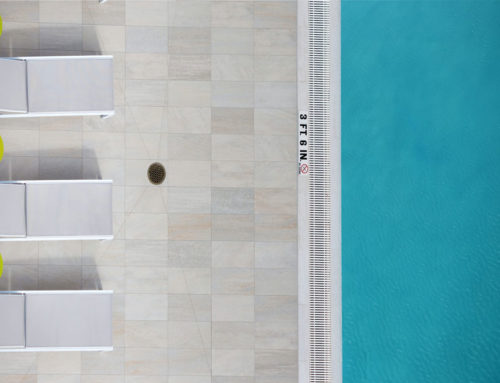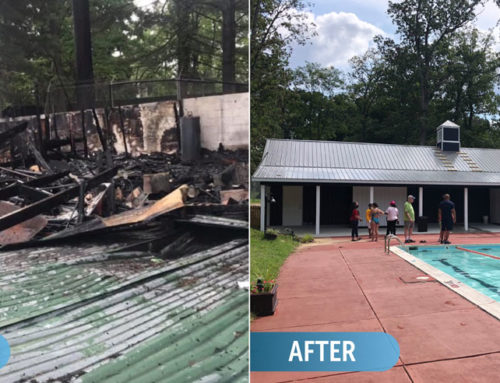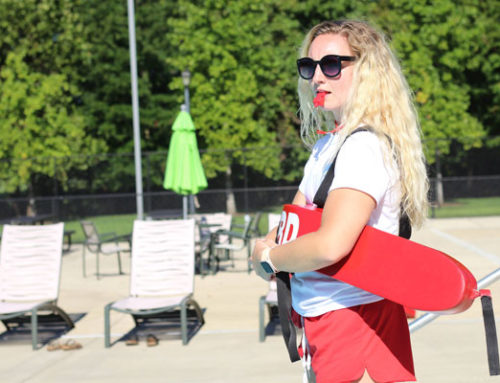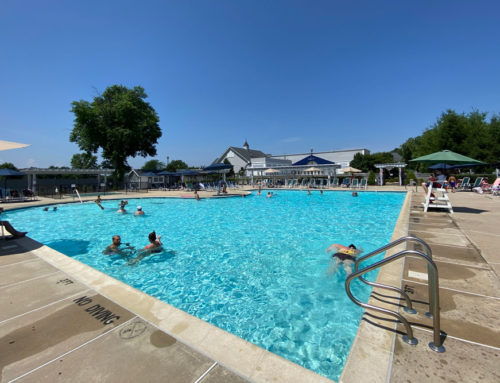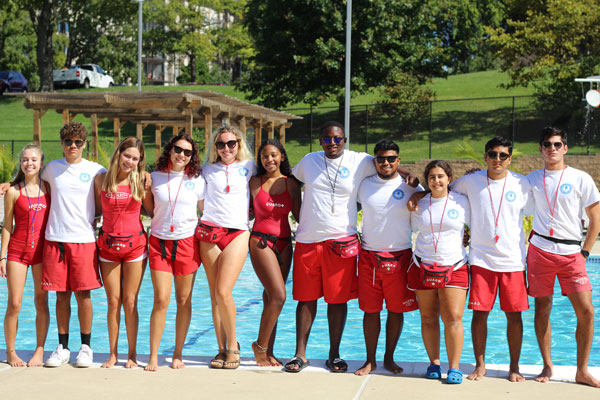
Lifesaving is life-changing. I’ve been a lifeguard for 12-plus years, and I’m amazed by the number of times it’s made a difference in my life and others’.
But I’m not just a lifeguard — I’m also a lifeguard instructor, meaning I’m responsible for training lifeguards. I’m also a lifeguard instructor trainer, so I’m also responsible for teaching the instructors who will train future lifeguards.
If that sounds like a lot to take in, that’s because it is.
I want you to imagine an automobile assembly line without any technicians. It doesn’t matter how well the car is designed, or how roomy the cabin is, or how safe it’s supposed to perform in crash tests. If no one’s building the car, the car doesn’t get made — it’s that simple.
If no one is teaching our lifeguards the latest and most-effective techniques for rescue and prevention, then no one is prepared to guard the pools. And, as 2021’s nationwide lifeguard shortage showed us, the work to recruit and train lifeguards is essential to the success of any aquatic facility.
You don’t need to know anything about lifeguarding to know how much this matters, but it still surprises me how few people really get it. No lifeguards mean no open pools mean no pool season. One could say lifeguard instructors are American Pool’s backbone.
It comes down to this: The right lifeguard instructor can make or break your pool season. At American Pool, we take care of this by implementing Guard for Life: our proven lifeguard recruitment and training program.
Lifeguard instructors are masters of prevention and emergency response
There’s a big difference between knowing something, and mastering it. That’s not just true for lifeguard instruction — it’s double, no, triple-true.
It’s like comparing checkers to chess. Your standard, above-average lifeguard is going to be well-trained and qualified to handle most emergencies. But an instructor is going to know how every component intertwines, and why they matter.
Say a swimmer is physically struggling or complaining of chest pain. A good lifeguard is going to know this is likely a heart-related issue. But a great lifeguard instructor might find four or five related concerns. She’s also going to understand how to spot each symptom to provide the best care. Better yet, she’s going to understand how best to demonstrate that knowledge.
With that master level of instruction, your lifeguards will be fully prepared for their first shift. This is why Guard for Life vets its lifeguard instructor candidates so carefully and selects only the ones who are prepared to handle anything and everything they may encounter in even the most challenging scenarios.
The right lifeguard instructor always has the right attitude
You get out what you put in. Passionate, positive instructors develop passionate, positive lifeguards. This is the No. 1 factor when we’re selecting the right candidates to become lifeguard instructors.
Most guards aren’t ready for instructor training right away. That doesn’t mean they’re not great lifeguards (because they are if we trained them). But instructors need to have a lot more nuance. Generally speaking, there are two categories of guards who need more work before becoming instructors:
The first group lacks hard skills. For example, a guard on deck will be able to meet objectives, but an instructor candidate should be able to demonstrate the standard for all lifeguard skills.
The second group lacks soft skills. It’s so important for lifeguard instructors to bring the best out of their pupils. How potential instructors interact with others means just as much as the knowledge base. Whether someone is direct, inspirational, funny, spacey, rude, or just plain mean — makes a world of difference in a lifeguard instructor’s product.
Believe it or not, the first group is easier to fix. I can teach someone how to perform all the required lifeguarding skills. But I can’t teach someone how not to be a jerk.
That’s not to say either of these groups are lost causes — far from it. We implement a company-wide system of positive corrective feedback, which ensures instructors receive constructive criticism when they make an error or we feel as if their pedagogy is lacking.
For example, shy individuals might not feel confident enough at first to instruct solo. But if their knowledge base is solid and their attitude is positive, we’ll partner them with another instructor at first until they feel comfortable. This helps less-confident instructors to develop confidence with enough time and experience.
Remember what I said about getting out what you put in? It’s easy to spot a great lifeguard instructor. Just find a great lifeguard. With American Pool and Guard for Life handling your recruitment strategy, you can rest assured knowing that your pool is backed by the country’s largest lifeguard recruitment and training program.
If you know someone that would make a great lifeguard or is interested in taking their skills to a new level, then send them our way!

